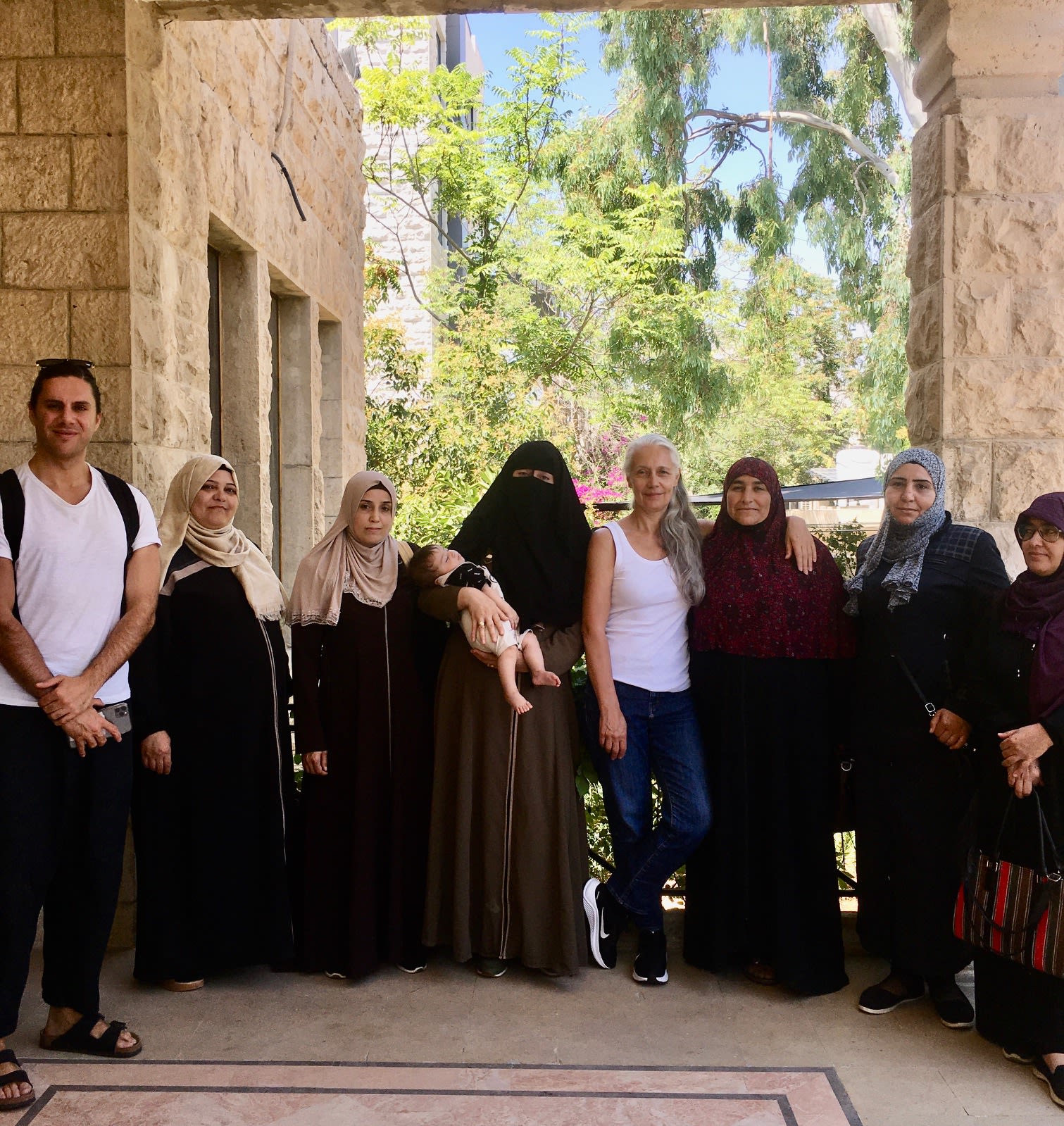
Dr Nabil El Nayal joins Professor Helen Storey to continue supporting the makers of Zaatari Refugee Camp

- Written byJ Tilley
- Published date 11 August 2022


For the past 6 years, Professor Helen Storey has worked side by side with refugees living in Zaatari, one of the world’s largest refugee camps, responding to their needs and wishes and co creating projects which nurture entrepreneurship, creativity and financial independence through the lens of fashion. Extraordinary projects have taken place including the “Made in Zaatari” Centre for female entrepreneurship and training and the first development of branded products of soap and jewellery and artistic collaborations.
Stemming from the project ‘Dress for our Time’, conceived by Helen in 2015, the dress itself was made from a decommissioned refugee tent gifted to the project by the UNHCR. In giving the tent a meaningful reincarnation as a public installation, Dress For Our Time humanised the data to tell a bigger story. As the project evolved Helen became increasing interested in Zaatari – the refugee camp where the tent had once housed a fleeing Syrian family. The trip was life changing for Helen and since then Dress for our Time has evolved into working with the people of Zaatari, predominately women and children, to give hope and empower the next generation.

As Helen’s work and practice extends with UNHCR to Africa, collaborations and opportunities for makers in Jordan are being purposefully embedded into new locally based initiatives & partnerships, who can continue to co-develop and sustain the future for the makers of Zaatari Refugee Camp. With the camp having just reached its 10th year of existence, more than ever, ways for refugee lives to be sustained independent of NGO support is crucial. The generous and ever willing relationship with the host country, Jordan and the on-going instability and war in Syria, means that lives for both Jordanians and Syrians need to continue to find sustainable balance.
Together with Dr Nabil El - Nayal, Helen is now collaborating with Turquoise Mountain, who have a world reputation for the nurturing and perfection of local and indigenous crafts and who will be the long term partners for the women we have worked with in camp for many years; giving them a new platform for local and global sales and a future now entirely in their own hands.
“As a Syrian now based in London I have dedicated much of my time and work to the exploration of what it feels like to be othered. Using embroidery and design as a mode of non-verbal communication, the hands of the women spoke to the complex issues surrounding identity and belonging in a way that cannot always be expressed through words. The hands were the driving force behind the creative process and presented opportunities for a very human connection, a connection without fear, doubt or self-consciousness.” - Dr Nabil El Nayal - Course Leader: MA Fashion Design Technology: Womenswear

- What’s on at LCF: open days and events
- More LCF Stories